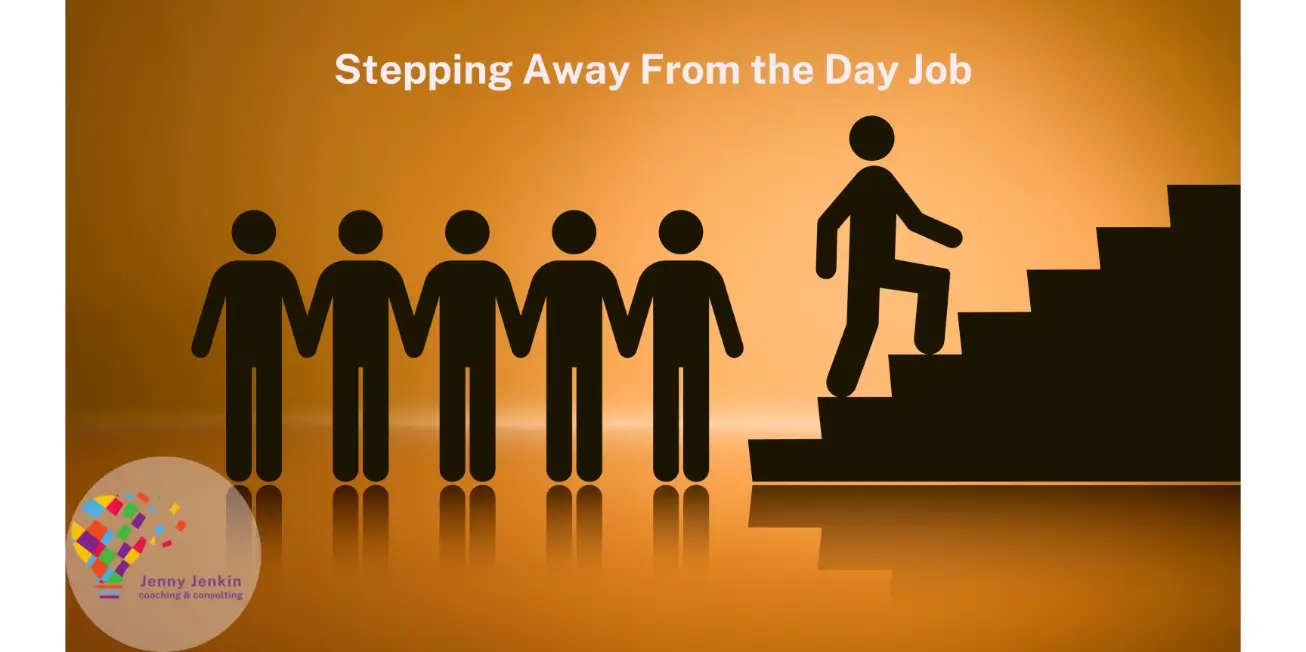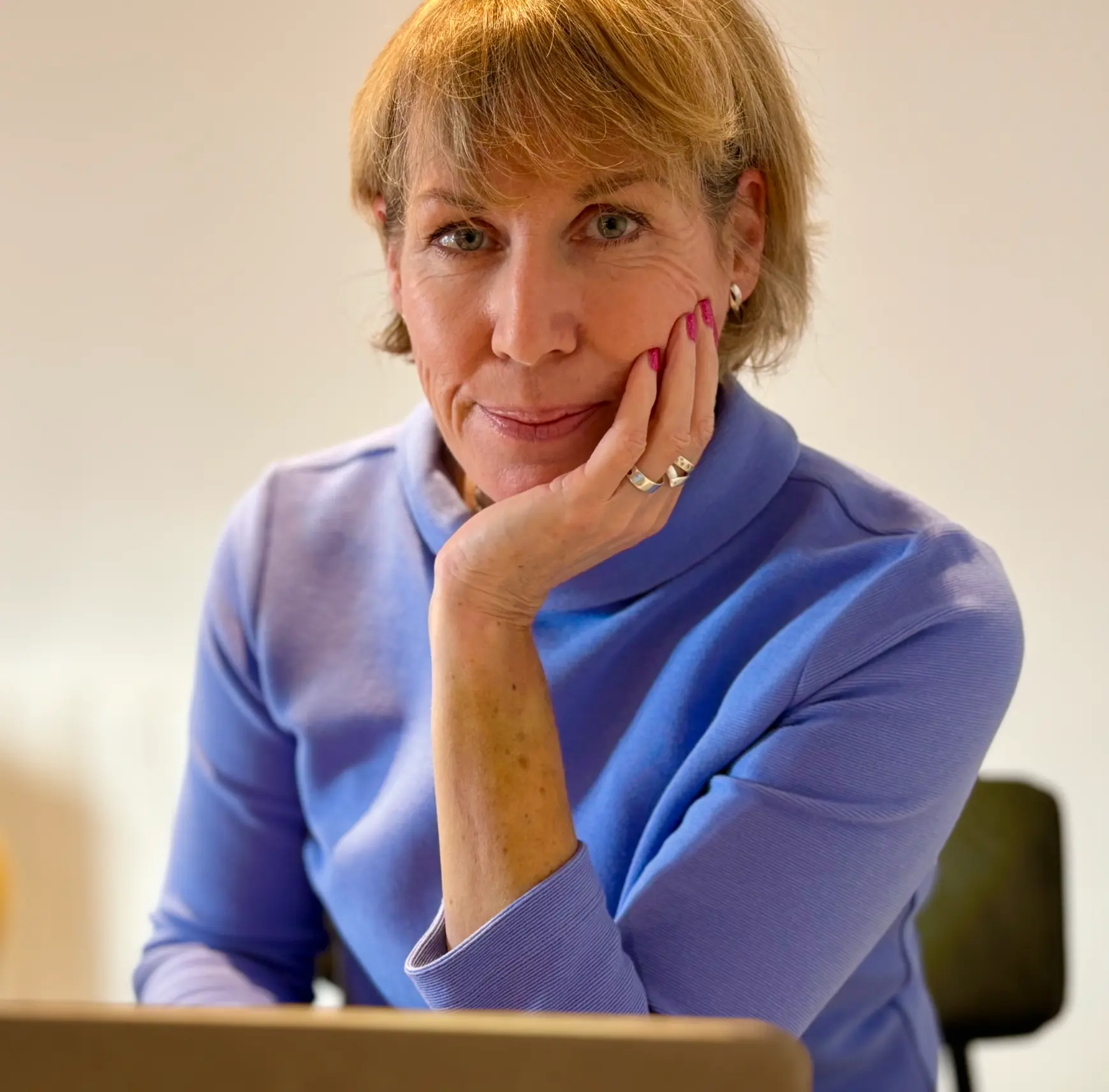This is a tricky subject but one that I’ve been meaning to write about for a while. I’m talking about the first day that you find yourself ‘not employed’.
We’ve all been there – or will be at some point. It’s normal. A rite of passage that should be covered in all good careers training. To put this in context, most people I know – including me! – have been there. Many have been there several times over.
Whether through redundancy (voluntary or not), deciding to go freelance, health challenges, caring responsibilities, retirement – the experience of stepping away from your career can be profoundly disorienting and kicks off a raft of unexpected and often pretty difficult emotions and trains of thought.
And it can feel pretty stark. One day you’re in the office, inbox overflowing, calendar packed with meetings. The next, you’re home, staring out the window, your professional identity feel very much behind you.
For many of us, our roles become deeply intertwined with our sense of self. The sudden silence of an empty inbox can feel deafening. A newly retired senior leader once said to me “One minute everyone needed a piece of my time, the next minute – nothing. It was like I’d become invisible.”
These transitions often bring big emotions that can catch us off guard:
🟣 A loss of status that can feel surprisingly painful, especially if we think we are ‘not like that’
🟣 Waves of relief mixed with uncertainty and faint panic
🟣 A sense of shame (even though there’s absolutely nothing to be ashamed about)
🟣 Identity confusion: “Who am I if I’m not the Director, Head of Service, Academic Registrar, Executive Dean?”
🟣 Grief for the future that you thought you had, for your old role, relationships, and routines left behind
🟣 Practical worries- finances, managing the worries of your partner, children, parents, friends.
🟣 An thrilling sense of liberation and freedom. This is an important one to keep front of mind!
Here’s what I have to offer based on my own experience and from working with others going through similar:
1. It helps to give yourself permission to feel all the feelings and not just squash them down. They’re normal, valid, and shared by many others on this journey. The emotional waves will come and go – let them.
2. Take time to decompress without guilt. Travel, read, have long lunches with friends, explore new interests. Try not to rush into “what’s next.”
3. Stay connected. This is crucial. Share your experience with close friends, former colleagues, new colleagues, mentors and family members. Join professional networks or alumni groups. Isolation can amplify difficult emotions, whereas active networks can attract opportunity and ideas.
4. When you’re ready, create a new daily structure that work for you. It’s incredible how much we can miss structure when we are not in an organisation. Mix activities you love with future-focused stuff (skills development, networking, consulting, volunteering, job search).
5. Consider redefining your identity – thoughtfully. Update your LinkedIn profile when it feels right. Draft a few lines that feels authentic and positive about this chapter of your life. Edit it at will if it changes for you.
6. Sit with, and learn about, uncertainty as part of the journey. Seek out others’ stories of their own major transitions. Reflect on any parallels with your own life. And discard those that don’t resonate – we are all different.
7. Think forward a year or 18 months into your ideal future – whatever that may be. Then imagine looking back over this time. What would you want to have done, tried, invested your time in? What do you NOT want to see?!
Above all, know this – your value isn’t tied to your job title or career track. Your expertise, wisdom, and impact don’t disappear when you step away from a formal role. On the contrary, they are likely to be liberated in a whole new way.
This transition will feel discombobulating, and yet it can – and will – open unexpected doors to exciting new ways of learning, growing and finding fulfilment. Keep your mind wide open and they will be easier to spot!
If you’re navigating this journey right now, know that you’re not alone. The HE community is full of people who understand what you’re experiencing. Reach out. Share your story. Support others. Network. Have conversations.
If this resonates and you are happy to share your own thoughts and experiences, I’d love you to comment. Someone reading this may find your comments utterly invaluable. The more we talk about this, the better!
🔸 🔸 🔸
I’m Jenny, and I work with frazzled women in HE to help them feel in control – so they can flourish
DM me if you’d like to talk.
#HigherEducation #SteppingAway





